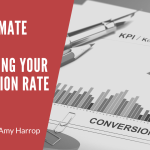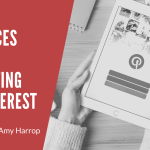 As a self-published author one of your biggest concerns is getting sales for your books. However, it’s even more important to simply attract the attention of your target audience.
As a self-published author one of your biggest concerns is getting sales for your books. However, it’s even more important to simply attract the attention of your target audience.
Everything else flows from there.
That’s why along with being a prolific writer, to succeed in the self-publishing space you also need to be a good marketer.
Marketing has always been thought of as the most important vehicle for taking your book from totally unknown to bringing in a steady stream of sales and reviews.
In more recent times, book writers have come to realize that proper branding is the bigger opportunity that promises to attract the attention of your core audience while simultaneously spreading the word about you and your books.
Why is Branding Important?
The reason branding is so important comes back to the way that people purchase today along with current buyer habits.
It used to be that sellers with the biggest budgets and the ability to advertise on a large scale were the ones getting all the business, or in this case, the books sales.
Today however, with the widespread use of the internet, the people who eventually win are the ones who know how to tell a story that connects with the hearts and minds of members of their target audience.
At its core, this is what branding is all about.
Storytelling and developing a highly recognizable and relatable public persona for your business.
Branding is about selling yourself. Keep that in mind and though it may be very hard initially, try to forget about selling your books for a bit and focus on helping your target audience to get to know you better.
If you’re new to self-publishing and completely unknown, branding is even more important for you as you venture out to create a name for yourself and gain visibility for your books.
Here are some tips on how to take the focus off of the books and put it where it belongs, on developing your brand and public personality.
Find and Define Your Unique Selling Proposition
An important step to crafting your brand is identifying your USP or unique selling proposition.
What is it about you and your books that will make someone choose to read your offer over one presented by another author?
When you think about it, almost nothing in the world is new, so what makes you more inclined to buy one pair of shoes over another, or a specific brand of cereal, a cell phone or one bottle of water over another?
It is the core values of the company offering their product or service, and ultimately, what the brand represents to the world.
That is the heart of branding and why it is so important as you go out looking for your audience and do marketing and promotion to help them find you.
Always Use Your Real Name
If you want to develop lasting brand recognition for you and your books, use your real name, or at the very least something that sounds like a real name.
Clever aliases are fun and appropriate for chat rooms, but when you are trying to build a solid foundation for your writing career, it’s best to use your actual name.
Now in some instances, is perfectly fine to use an alias.
For example, J.K. Rowling had so much success with her Harry Potter book series that she found it necessary to completely switch up her public persona with a book she later published called “The Casual Vacancy”, publishing the manuscript under the name Robert Galbraith.
This name change made it possible for her to release new work and enter a new literary niche without bias stemming from her previous work.
Create an Author Website
The cornerstone of branding for book sales is your author website. Think of your articles, social media posts and other promotional materials as bait that you use to lure your ideal reader closer to your brand and books.
Your author website then becomes the net that you use to really grab and hold your reader as you gently lead them towards signing up for your email list.
Once prospects are on your contact list, you can share more about your unique personality and specific insights on an ongoing basis while occasionally promoting your books.
When potential readers land on your website it should be crystal clear what its purpose is and who they will find out more about.
You!
Have a professional picture of yourself prominently displayed as well as an About Me page with a more detailed biography.
A page that features all of your published books is essential.
This page should link to dedicated pages for each book that delve deeper into what they are about, with additional information and testimonials that make the book more appealing and likely to be purchased by anyone who stumbles upon it.
Here are examples of excellent author websites that are perfect for branding for books sales.
Not sure where to start when it comes to building an author website? Check out A Comprehensive Guide to Building an Author Website where you will find actionable steps based on the author’s personal experience of writing and publishing 30+ books in the last 10 years.
Make Your Blog Central to Your Branding
Blogging presents self-published authors with a unique opportunity.
You can reach out to your target audience without being perceived as pushy or salesy, but at the same time influence them in a big way by encouraging them to find out more about what you have to offer with your books.
Writing and sharing quality and consistently created content is one of the fastest ways to build your brand and reputation online. This is true whether the blogging takes place on your own blog or by guest blogging on other people’s blogs.
Many people think of blogging as a collection of random things and ideas that people write about online.
However, to turn your blog into an effective branding tool, it’s important to think of it as a way to share your perspective on topics related to your books.
So, for example, if you write horror stories, create blog posts that speak to scary and gore-related topics. And if you are an adventure writer, focus your blog posts specifically on adventure-related topics.
If you are a non-fiction writer, blogging is much easier. You simply find topics that relate to the broad idea that you cover with your books and blog about those.
For example, if you write books with tips on finding the perfect job, you could write a blog post about career options based on your personality type.
Rework Your Author Biography
If you are serious about marketing your self-published work, you will have an author biography ready and waiting to copy and paste into various online marketing mediums such as guest blog posts and articles.
This is where, done correctly, you really get a moment to shine and give your reader a true glimpse into who you are as a writer and more importantly, as a unique person.
When you create your new bio, be creative and focus on sharing your interests and unique abilities outside of writing to give your audience specific insight about your true personality.
Depending on where you post your bio, you may or may not want to alter it slightly to appeal the specific group of people who will read it.
In most cases, a single solid biography is all you need to develop for use in all promotional efforts for your books.
Always remember to link back to your author website and blog from your bio blurb.
Branding for book sales is all about helping your future customer to get to know you better, building relationships and increasing your fan base, which ultimately creates more opportunities for you to sell your books.



